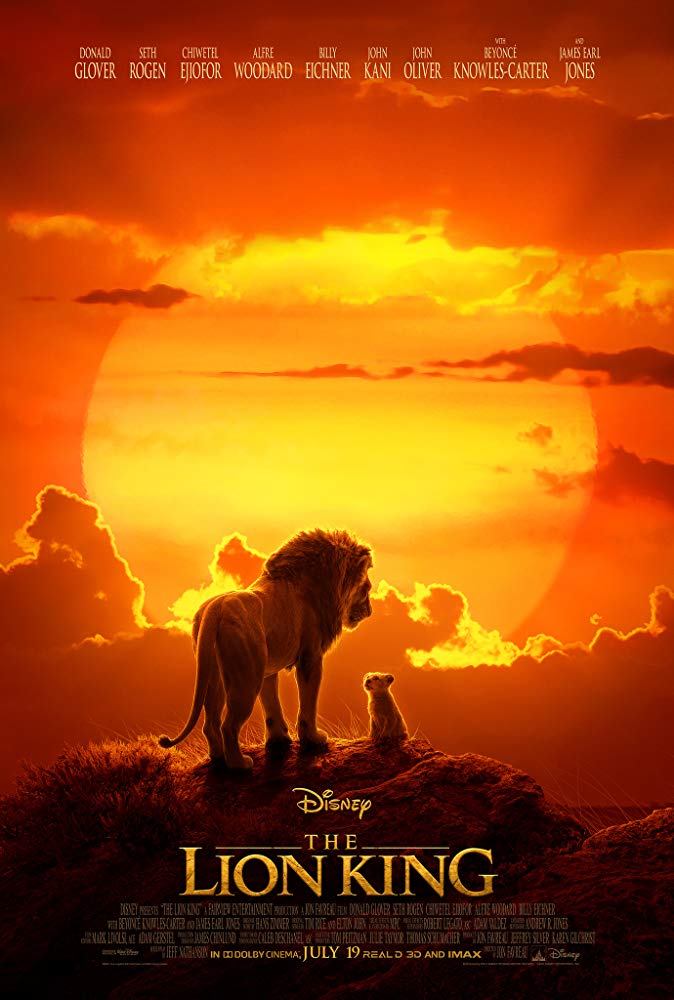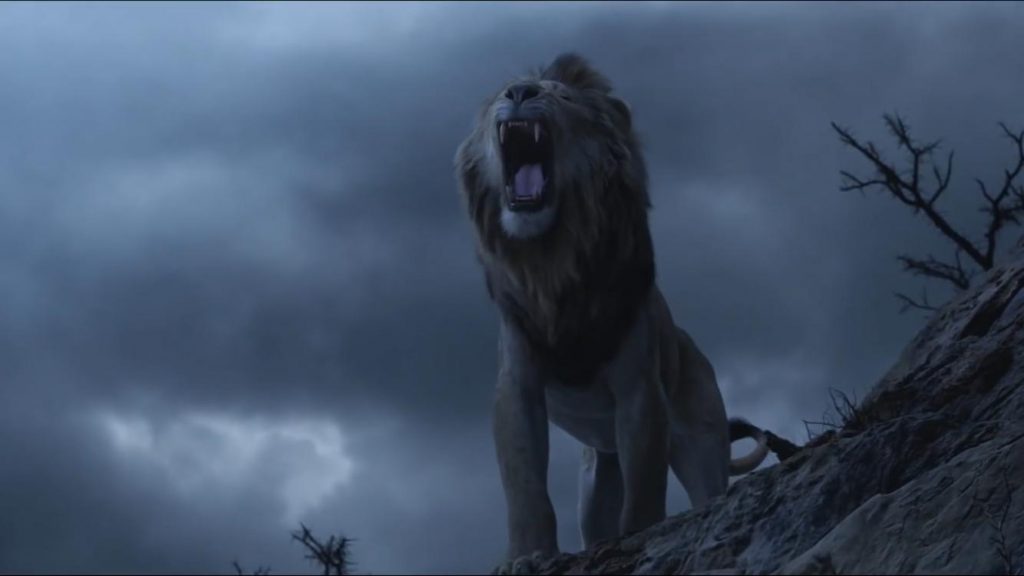It’s the circle of Disney movies, and it moves us all.
No matter what we do, Disney is going to continue revamping its classic animated movies into live-action films. We’ve harrowed through the likes of 2017’s Beauty and the Beast revamp and the uninspired Aladdin remake just a couple of months ago – though the trend hasn’t been entirely without warrant, as it also resulted in Jon Favreau’s good The Jungle Book adaptation in 2016. Luckily, Favreau returned to direct The Lion King, the best of the Disney live-action reimaginations so far. Though the word “reimagination” may be a stretch, as it hardly deviates from the 1994 cartoon and sometimes even directly recreates certain shots – but it’s a cinematographic wonder with a stellar cast and soundtrack. It’s less ambitious than the other remakes in trying to enhance the story it’s telling – but that may just be its secret to success, because when you have a story as classic as Lion King, you don’t have to try to fix what isn’t broken.
And it is a story that everyone knows. Voiced by JD McCrary as a youngster and Donald Glover when he grows his mane, lion cub Simba just can’t wait to be king. From the moment Rafiki lifts him above Pride Rock and he oversees his kingdom, he looks forward to ruling like his father Mufasa, who is voiced by James Earl Jones, returning to the role from the original at age 88. But Mufasa’s brother Scar has his own plans to steal the throne from his brother, and judging by the menacing silky smoothness in Chiwetel Ejiofor’s voice work, Simba and Mufasa better be prepared.
The movie could be paused at any minute and the shot would look like a finely composed picture, thanks to Caleb Deschanel’s excellent cinematography work. It exchanges the saturated colors of the cartoon for a golden-orange palette in a realistically rendered African setting – everything the light touches is gorgeous, and even the place in the shadows doesn’t look so bad. For a movie that values realism, it’s heavily reliant on CGI, but there’s hardly a moment where the computer-generated cast of animals don’t look real. You can almost feel Simba’s paws sinking into the desert sand or Rafiki’s staff swing through the air – everything has its proper weight. Impressive visuals in 2019 may no longer be a ticket-seller like it used to be – but if any movie deserves to be gawked at, this would rank high on that list.
The hyper realism does have its downsides, though – in fact, it’s the biggest downside of the movie. There’s a reason the story works perfectly as a cartoon – the animal characters can emote with their faces without breaking the suspension of disbelief, even though lions don’t gasp with their mouths open, warthogs don’t grin, and animals’ faces don’t convey emotion. That’s a limitation here, as key emotional moments are softened by unchanging expressions of the main characters. The horror Simba feels following the wildebeest stampede is muffled, for example, and sometimes the emotion in the casts’ vocal deliveries just don’t match the faces on screen.
It’s a disservice to the cast of voice actors who unanimously bring great work to the table. Billy Eichner and Seth Rogen are the comedic standouts as everyone’s favorite meerkat and warthog duo, Timon and Pumbaa, pontificating off each other and the characters’ hakuna matata lifestyle (it means no worries). The cast, boasting names like Alfre Woodard, John Kani and Beyonce Knowles-Carter, cover the extra mileage to deliver the emotional punch the film demands. They also do the soundtrack justice – Eichner, of Billy on the Street fame, surprises with an impressive range. Glover and Beyonce are incredible solo musicians, though their Can You Feel the Love Tonight rendition struggles as Knowles (as Nala) tries not to dominate Glover’s thinner voice. She gets to fully belt it out on Spirit, a new track created just for the film that shows off her enormous voice.
Is it too derivative of the original? Maybe. It depends on how familiar you are with the original, which still stands as a classic tale today. It wisely avoids pitfalls other remakes like Aladdin fell into by changing too much of the story in arbitrary ways to extend the play time while bringing nothing significant to the table. At just under two hours, this is a tight retelling that should satisfy moviegoers looking to relive the original with 2019 filmmaking capabilities. For once, the circle of disappointing remakes is broken.






